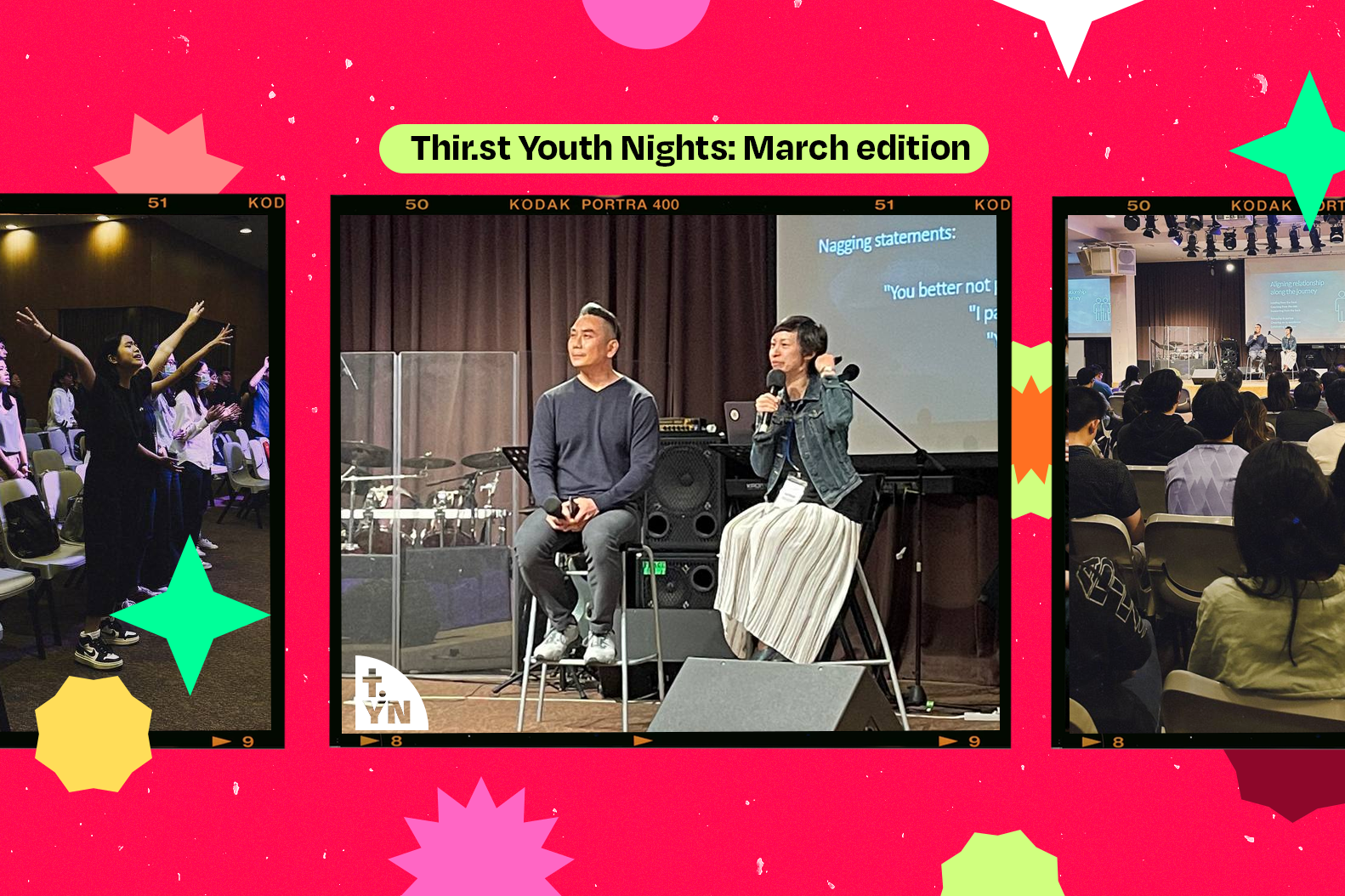On a night (one of the monthly #ThirstYouthNights we’re doing through 2023) that was all about reconciliation in families, I was surprised to find I was struck most by what happened before the actual event.
Standing among teens, young adults and parents at the pre-event prayer, I saw a picture of generational unity.
Tearful prayers in the vein of Malachi 4 were made by believers wanting the same thing: God’s glory and move in all our families.
Uncle Frankie and Aunty Tina
Anyway, that’s not to say the actual event wasn’t worth mentioning – far from it!
After icebreakers and worship, local couple and parents Frankie and Tina Tan took to the stage for an eye-opening panel discussion on parenting, marriage and family life.
Tina is a stay-home mum while Frankie holds a Ph.D. in Sport Science & Physiology and works at the Singapore Sport Institute.
Both are active volunteers with various community groups like SPARK, SAFRA, Dads for Life and in their church, and have a heart for parenting and marriage.
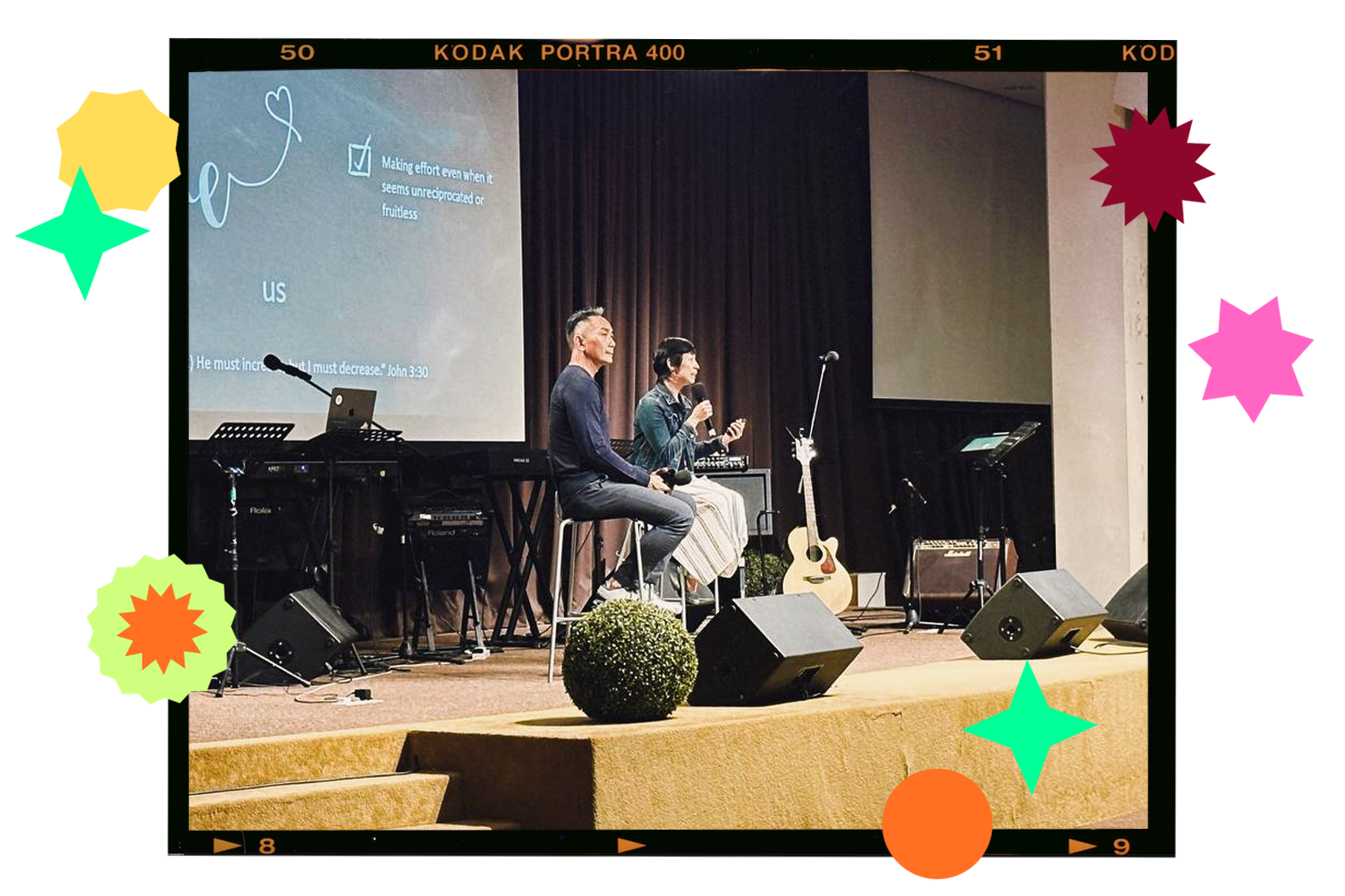
They began their segment with the question: Do we really know what our parents mean?
Tina shared that perceptions of meaning are different between generations.
Silence, for instance, might mean a different thing to a young person as compared to his or her parents – and it is helpful for both parties to be aware of that.
Asking if we are “speaking so we understand” or if we are we “speaking to be understood”, Tina then shared a series of “trigger statements” that both parents and children might move away from.
For parents, the encouragement was to go beyond “rhetorical questions” and “nagging statements”; for children, it is to go beyond “guttural replies” like uh and ya.
Both parties must take steps towards better communication.
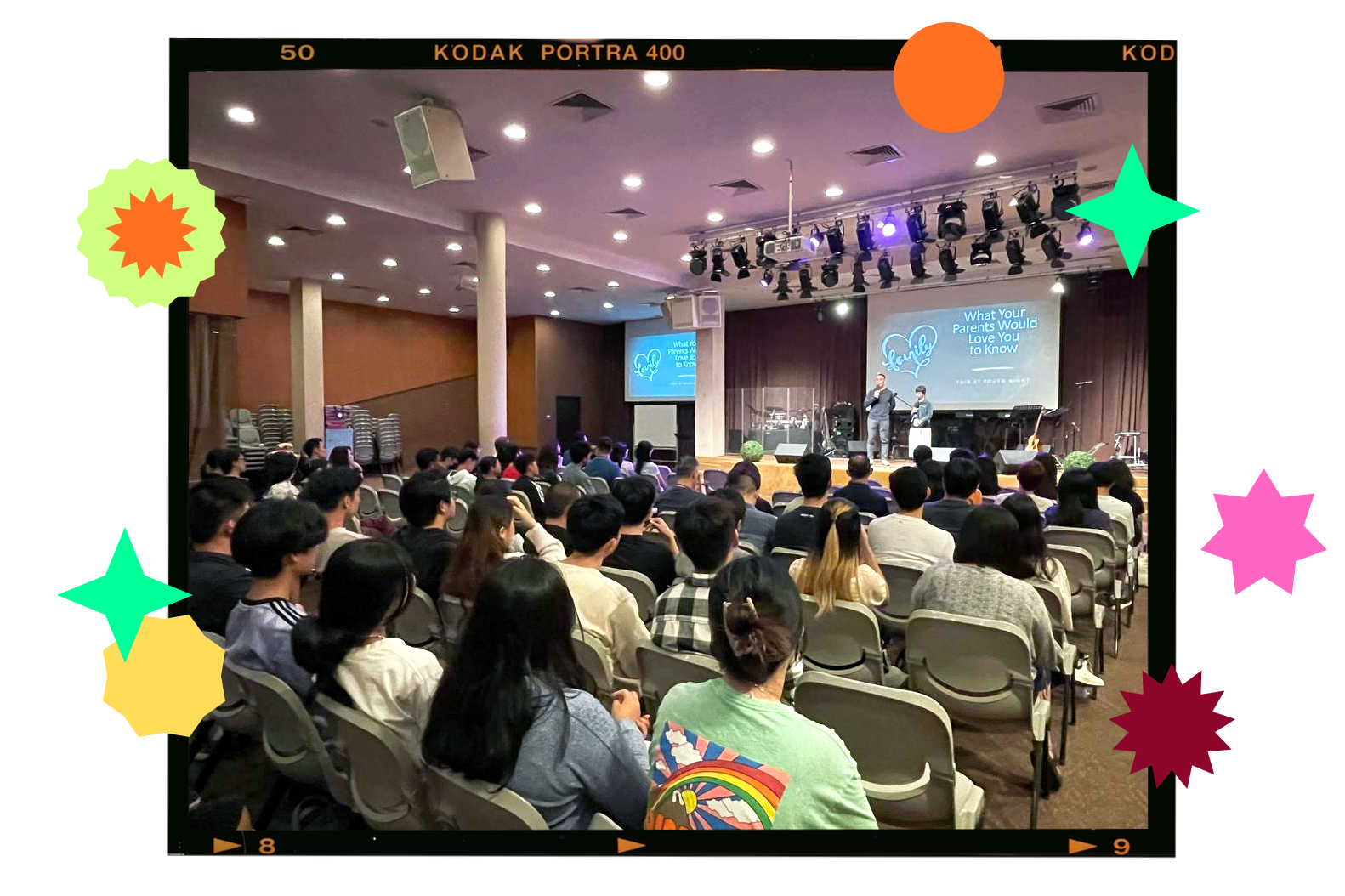
“Sometimes we don’t say what we mean or mean what we say,” Tina continued. “But we love you and hope to get it right.”
She elaborated that, as imperfect and “flawed” parents, when it comes to communication – there’s a whole lot of meaning they mean to express which can end up coming out poorly.
Communication breakdowns aside, Frankie’s encouragement was that parents, while flawed, are nevertheless, “flawed masterpieces” who should esteem themselves rightly and take heart as they continue communicating and continue striving to be good and godly parents.
Tina then gave the young people in attendance another glimpse into their parents’ hearts, in the fears that they have.
- We didn’t raise you well
- We didn’t give you the best opportunities
- You’ll blame us for not doing enough
“We are afraid we don’t get it right,” said Frankie, who shared openly that he took a full, year-long sabbatical to commit more time to his family after one of his sons began experiencing severe anxiety.
“Even with so much commitment and conviction, I still had times when I asked myself, am I doing enough?”
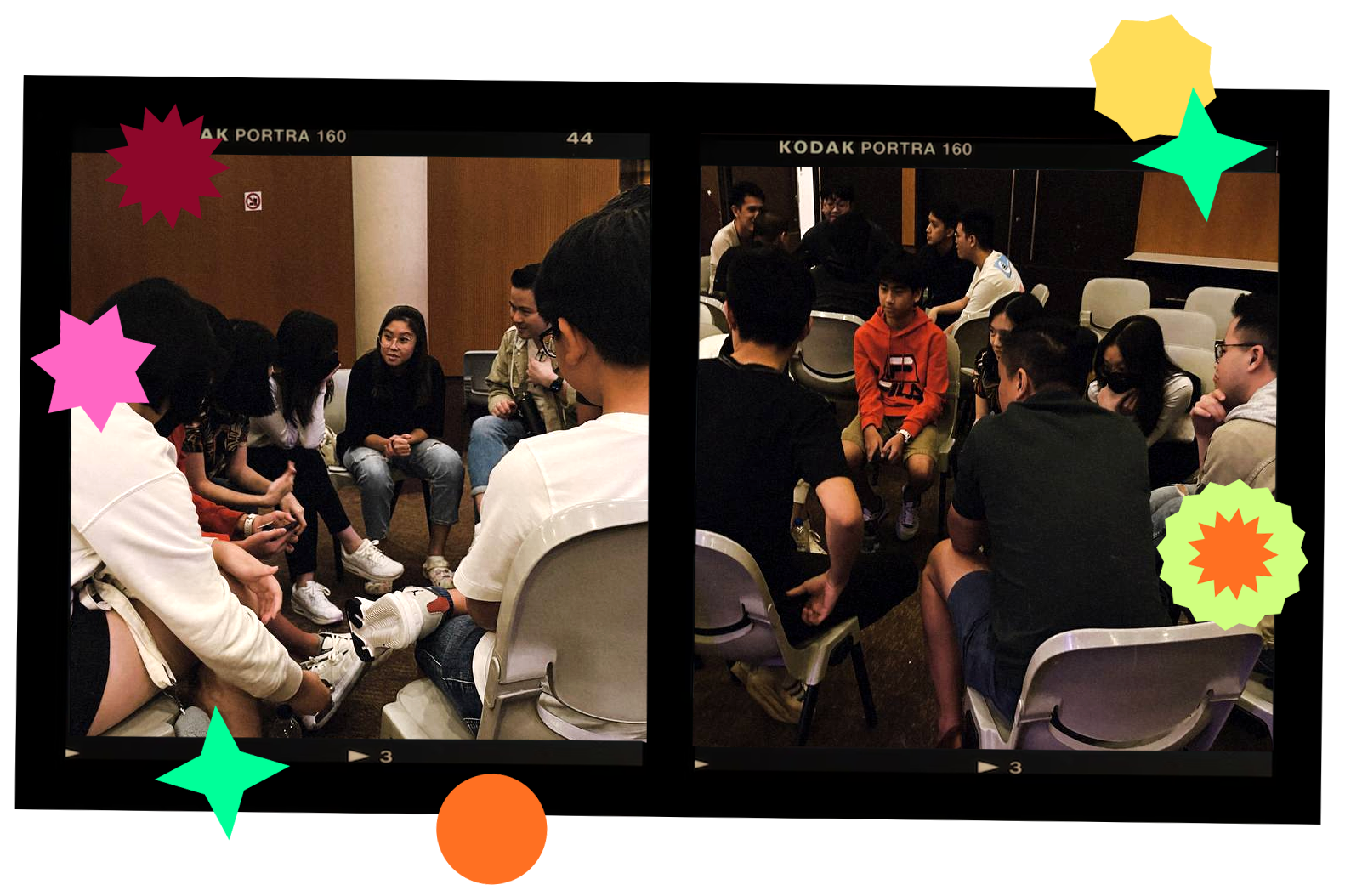
Tina then attempted to sum up parents’ hearts with one phrase: We are sorry.
Standing in the gap symbolically as parents, they spoke that apology to the youth in attendance, in the spirit of wanting to see reconciliation and restoration in families.
“There’s restorative, life-giving power in saying sorry,” affirmed Frankie, who encouraged parents to reflect on their family life and to see where forgiveness must be asked for and released.
“We have a son with special needs,” Tina further revealed. “There were many times I didn’t do what was right. I would be very loving… but something would happen and I would blow up.
“And I realise I was going in these cycles of being so ‘good’ and ‘godly’ and bursting out because I couldn’t cope anymore. It showed that all I was doing was from my own flesh.”
Tina’s point was that parents have to be “anointed” by Christ and parent out of what they’ve received in Him.
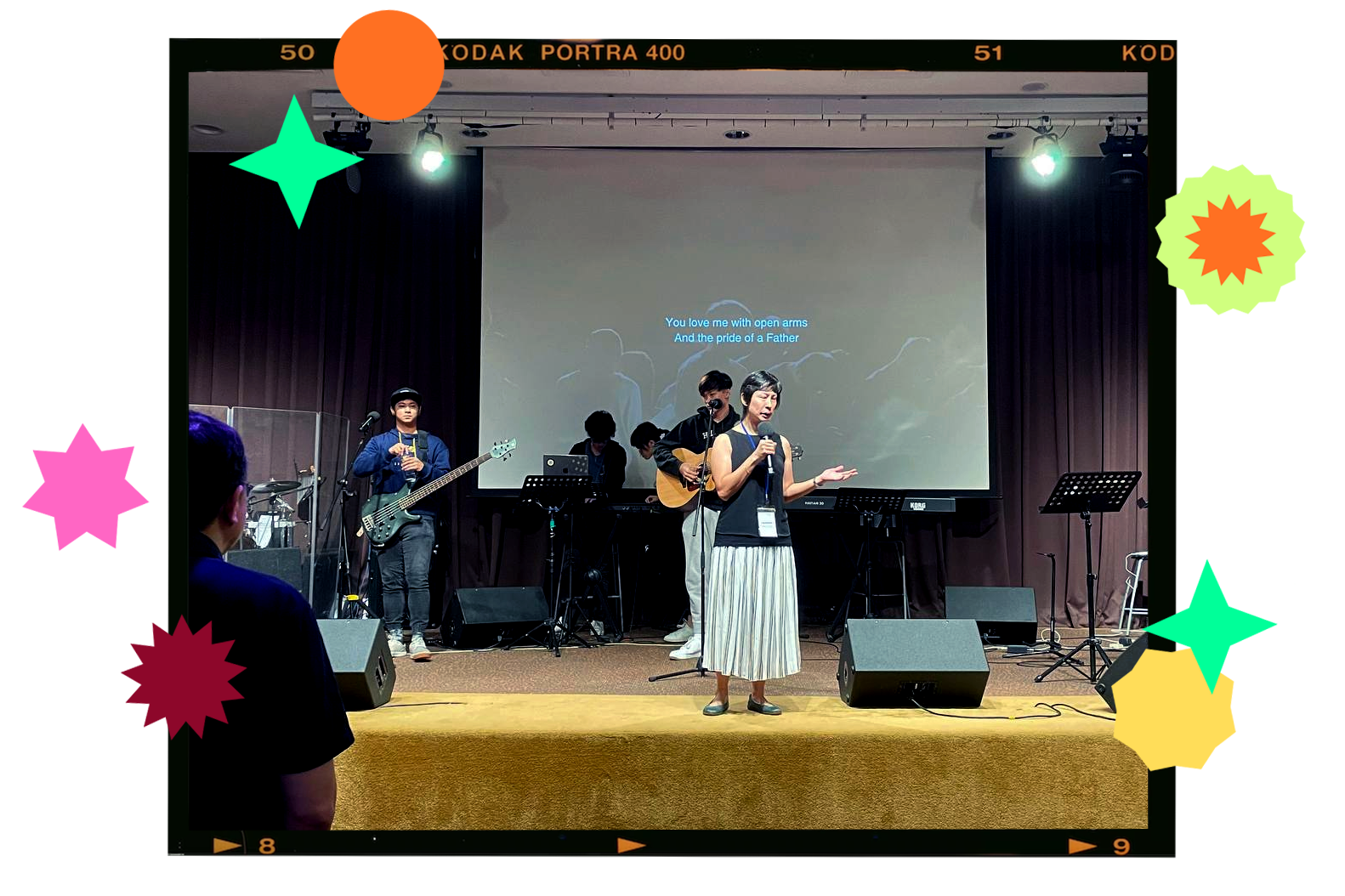
Tina then looked back on when her son with special needs was in Primary Five and dealing with depression and anxiety.
Each time he answered Tina, he would do so from a place of sadness or anger – and the words would come out very rudely.
This carried on until Tina asked him one day, “Do you realise that you’re being disrespectful and that you’re being rude?”
Her son answered: “I’m trying, but I can’t help it.” That was an answer that broke Tina’s heart because she realised that he knew, and he just could not help himself.
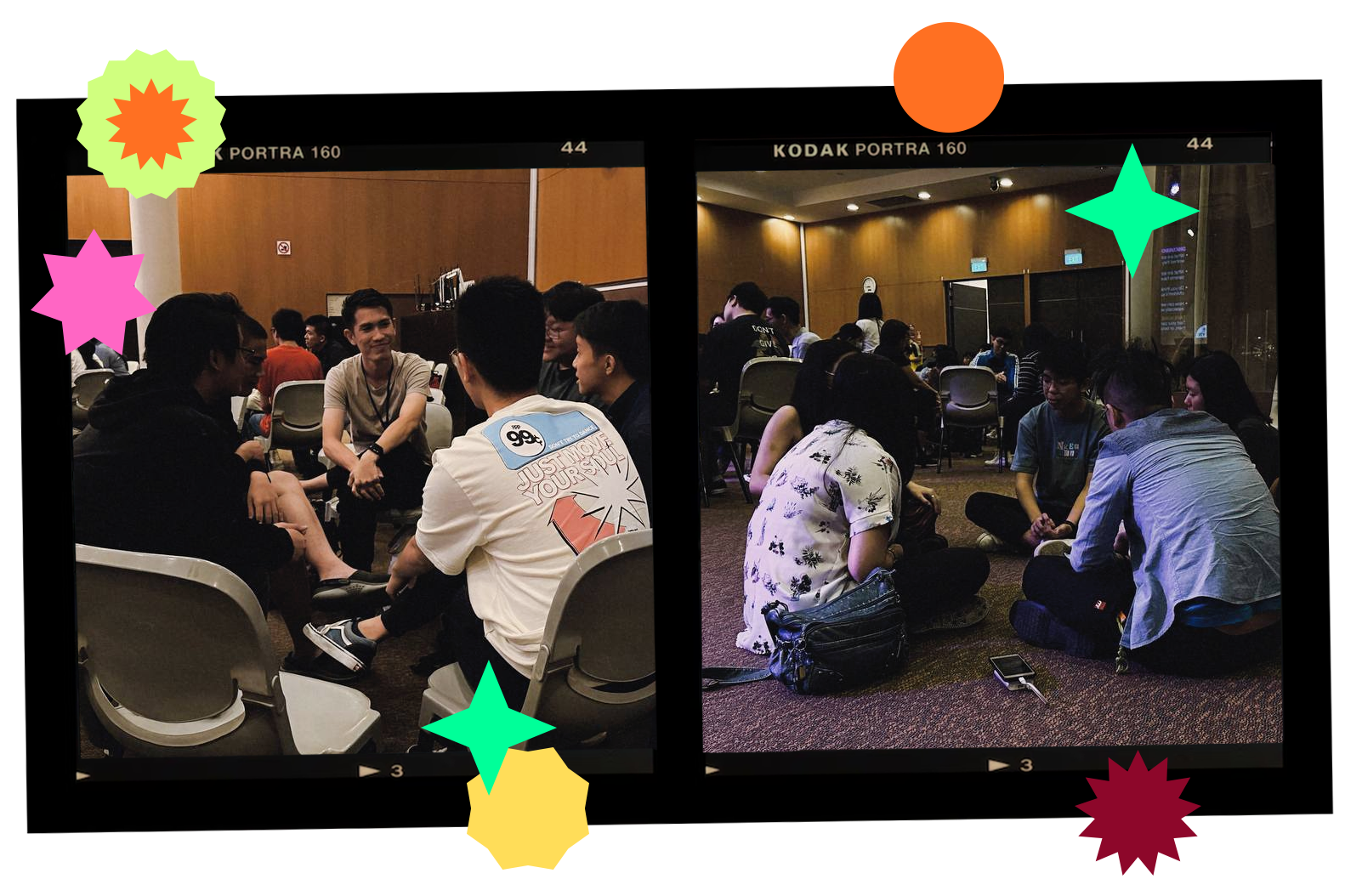
That sense of helplessness, when it comes to child-parent dynamics, was something Tina wanted to address as she spoke to the young people in the congregation.
“Sometimes you’re triggered, you yell back at your parents – but you don’t actually want to be that way,” she said.
“You feel lousy. What has become of me? I used to be this beloved child and now I’m this grumpy, rude, disrespectful person.
“Sometimes you feel so lousy that you think you can’t get better. You think, ‘no choice, that’s me’, and you stay in that guilt and shame.”
To young people who could resonate with this description, Tina’s encouragement is that God is the one who can bring “restoration and reconciliation” to you as a person internally – and He can do the same for our families.
A better way forward
The Tans then turned to an often important aspect of family life in Singapore – grades and accomplishments – and shared why they believe children are way more than what they can achieve in life, and why parenting is much more than producing performance.
In that vein, Frankie offered a model for parenting.
- Leading from the front
- Coaching from the side
- Supporting from the back
- Releasing to pursue
- Cheering on to excellence
- Celebrating successes
Frankie shared that, for parents, it’s about being in “close proximity” with their children to help them discover and hone their passions and Kingdom purposes – and releasing them to these things.
“Celebration is a spiritual discipline,” added Frankie, noting that it is a practice that helps families grow in gratitude and remember God’s faithfulness.
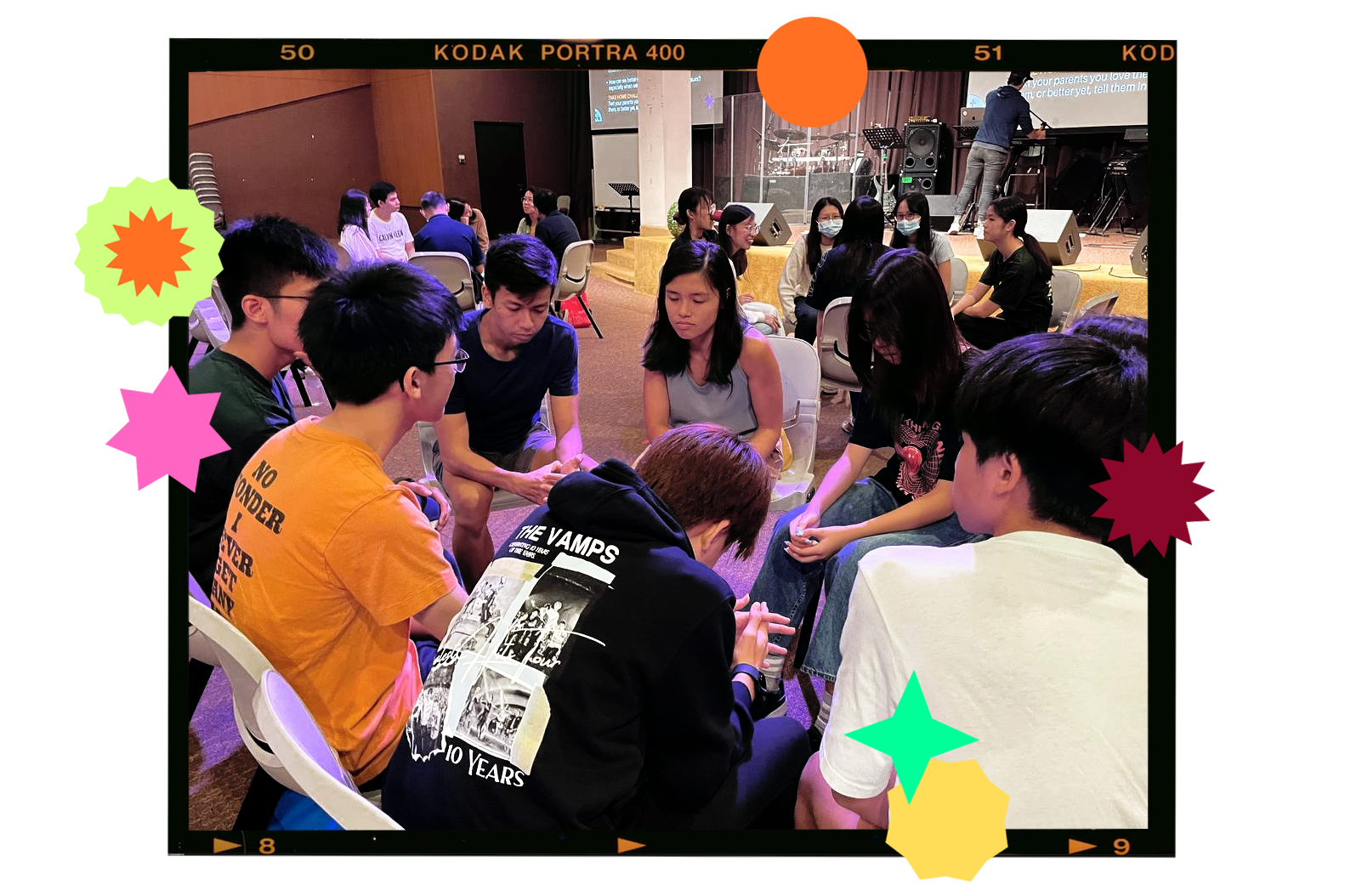
At the same time, for children, it’s a two-way conversation.
Frankie shared that children should also have the freedom to share with their parents how they are best led, supported and encouraged in this growing journey.
Frankie added that he loves this framework because it enables both parents and children to enjoy every stage of life’s journey with each another.
Learn to love us
Speaking as a parent, Tina then shared that one thing we can do is to learn our parents’ love languages and love them that way.
“If your parents need to see you, to hear you, to have a little text message just to know you’re alive and well… Why not?”
Tina’s encouragement to younger believers is to wash their parents’ feet in simple ways like these, the “difficult, daily, sweaty, mundane tasks” that contribute to the home.
one thing we can do is to learn our parents’ love languages and love them that way.
She shared her belief that, in the context of the Great Commission, “the most immediate mission field is the home”.
“It starts with your household first and then beyond your circles,” she said, noting that it is hardest to love and hardest to be holy at home.
And that’s why we need Christ every step of the way if we are to see transformation in the household, she added.
Making efforts for our families when they are unreciprocated is tough, but Tina shared that God can do miracles and Christ can work and speak through you in ways that surprise you when you surrender.
“You can be the change in your family,” she encouraged. “With Christ, don’t see yourself as a victim – you are now the vessel. The transformation can start with you.
“Own your faith, own your family. Don’t always say I wish so-and-so were my parents… God has a unique journey for each of us and our families.”
That said, Tina recognised that there are many families that face deep struggles – but that’s also all the more reason to pray Jesus into our lives and homes.
“Let our ceiling be your floor”
The Tans then spoke about pride as their message drew to a close, pointing to a phrase that’s sometimes heard in Christian circles: let our ceiling be your floor.
Visually, for Tina, that picture can be slightly problematic because young people, being “on top” of their parents, are positioned to look down on them.
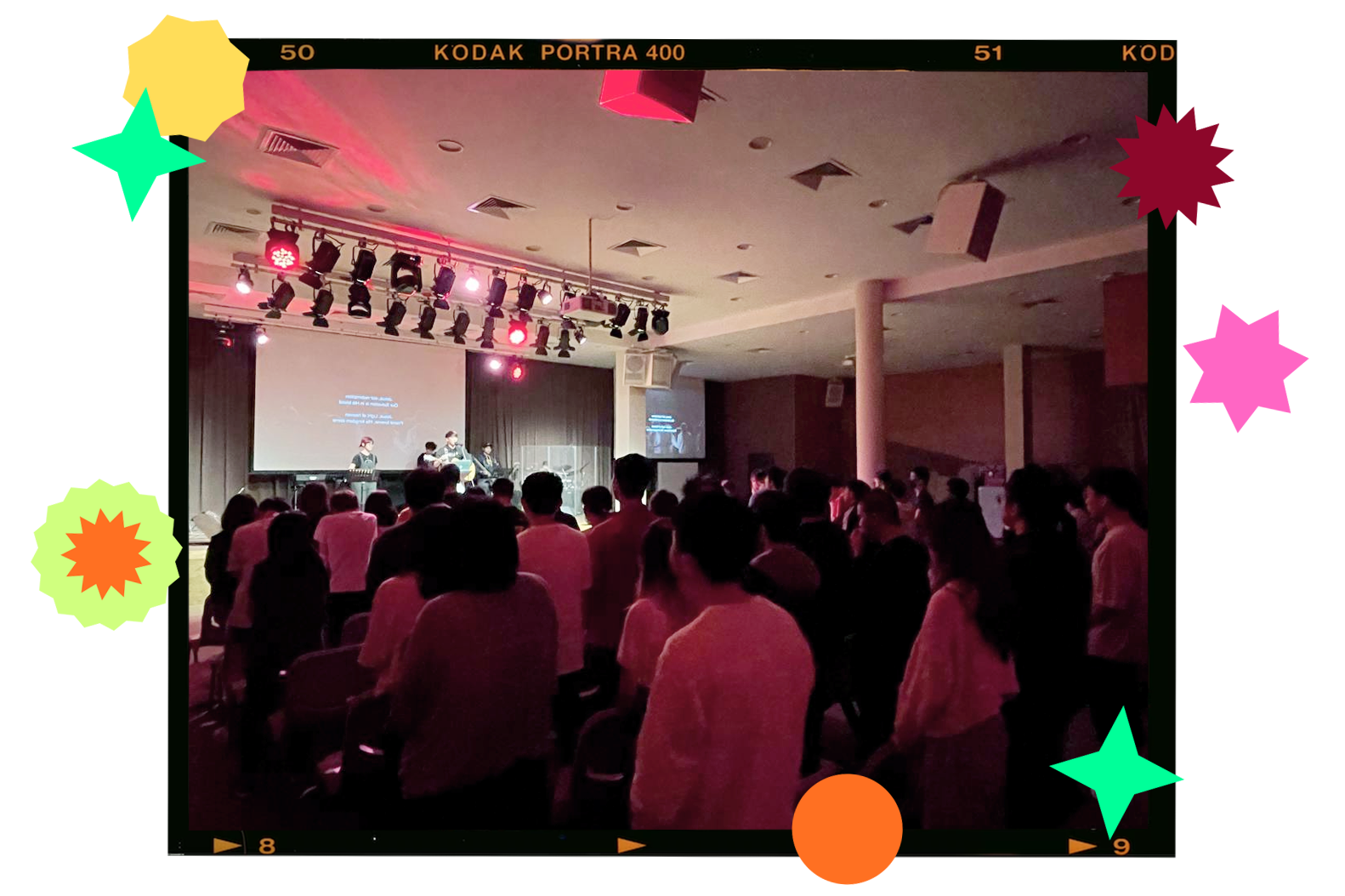
Tina raised the example of her son (who received the gift of prophecy from an early age) who had, in recent months, been impatient and developing a growing “disregard” towards his parents who are “slowing down”.
In tears, Tina recalled her eventual conversation with her son: “We have released you, and we are supporting you to fulfil the destiny that God has for you. But I ask you this: do not look down on us with disdain…
“We are cheering you on, that’s what we prayed for… We don’t need you to credit us. Just love us, have some gratitude. Just smile. We ask very little, don’t look back with condescension.”
Tina shared that it can be very painful for parents and leaders when they are being outran or feel forgotten – and that’s why we need to honour one another.
Finally, the Tans wrapped up their segment on families by reminding the congregation about how God views generations.
They counselled against an overly simplistic mindset of starting “a new generation” to get away from one’s parents’ or family’s flaws.
“Do not give up on your families, because that’s the very thing that God wants to redeem,” said Tina.
“God is a God of families and a God of nations – and families make up nations,” affirmed Frankie. “Ask God how you can make your parents to be successful parents.
“If your parents are not believers, pray for salvation to come!”
Young people, what does this mean for us?
As the congregation broke off into discussion groups comprised of youths and at least one parent to share about what they took away from Frankie and Tina’s sharing, I sat at the back typing this article up and reflecting.
One of the slides the TYN Team left up had a little challenge at the end of it that went like this: “Text your parents you love them and appreciate them, or better yet, tell them in person!”
I come from a family where such expressions of love are not really what we do, but I took my phone up and wrote something from the heart anyway.
“Little challenge that I find meaningful… Thanks mum. Love you and appreciate everything you do.”
I realised that if you want to see something new in your family, you have to being willing to try something new.
That can be difficult in families, especially when you’re so used to one another and so accustomed to how things have always been.
But if we genuinely want the reconciliation and restoration we pray and sing about, then we have to be willing to try things God’s way.
Good stuff, right? Why not KUM YAN join us at the next Thir.st Youth Night? We’ll be looking at how to be yourself for Jesus while online.

- Take a second to think about your family.
- Ask the Lord what He wants to do inside of it.
- Will you be an agent of reconciliation in your family?
- From this week on, take a practical step and be a blessing to your family.


